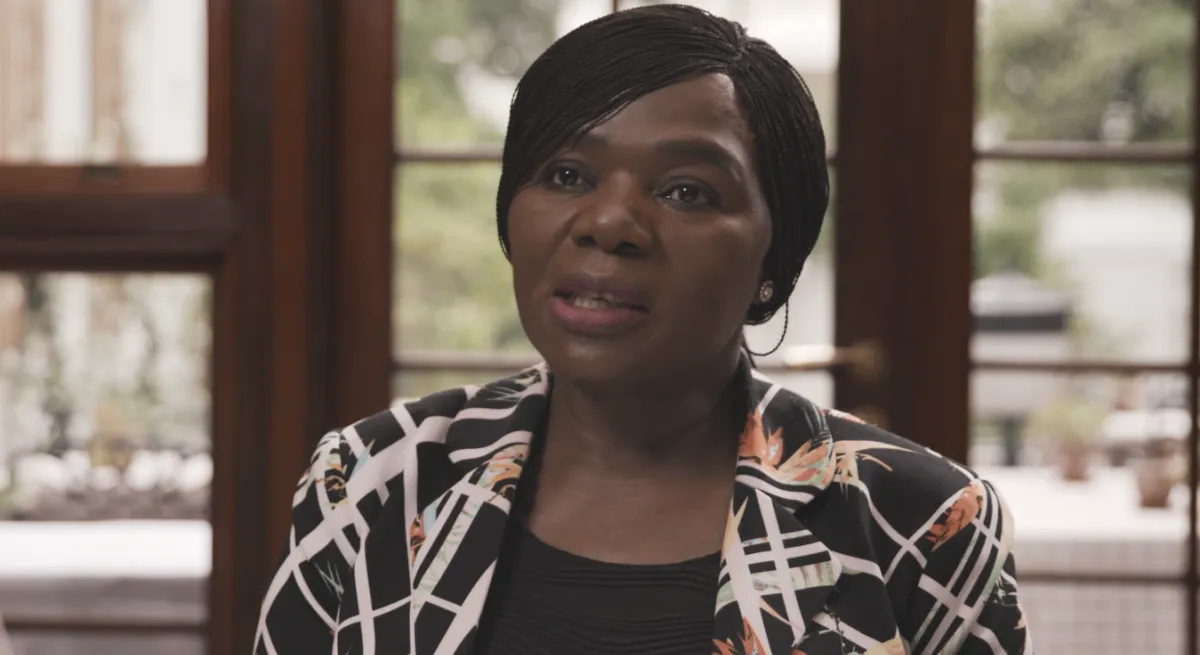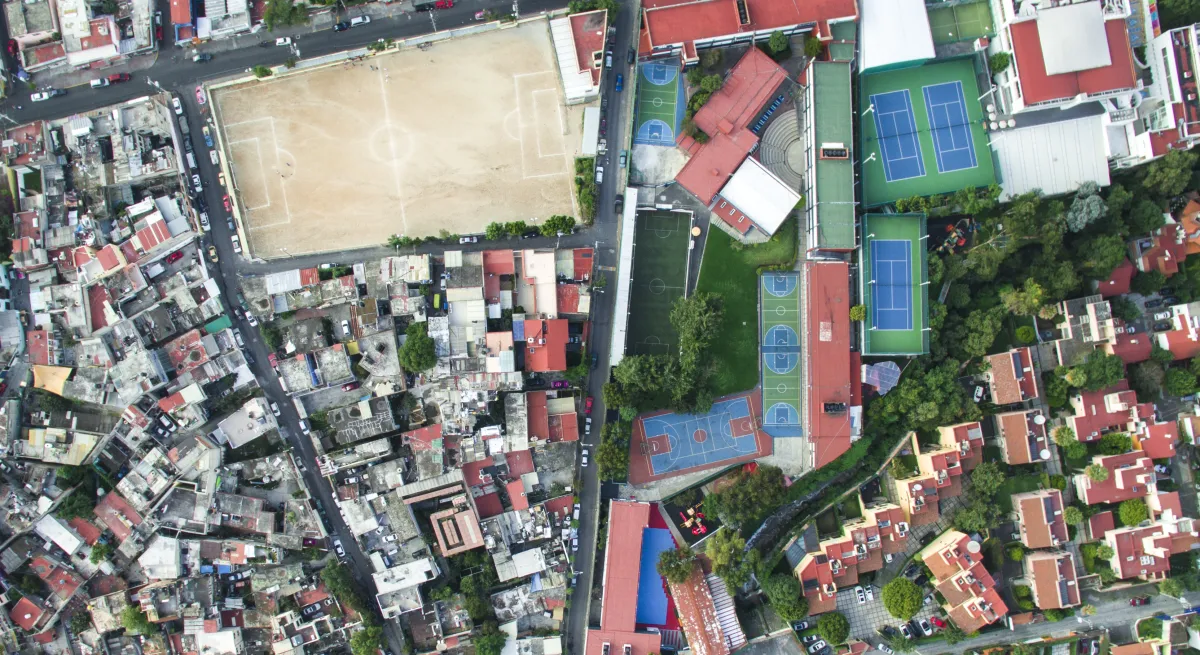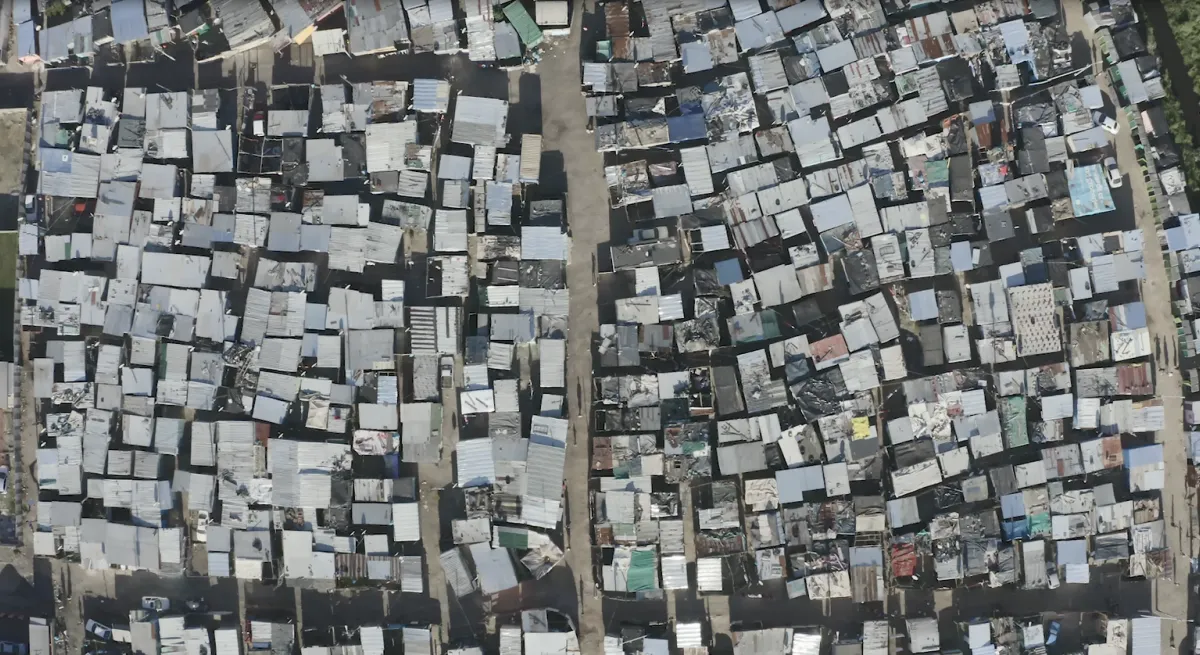
Thuli Madonsela has been dedicating her life to advance social justice in South Africa, the country ranking 1st for inequality worldwide.
In our first Wealth Inequality Initiative podcast, Thuli Madonsela comments on the situation of wealth inequality in South Africa, her recommendations to her students for effective change and the most urgent issues in tackling the wealth disparities. She cautions: “poverty operates like an epidemic”.
South Africa ranks 1st for inequality at a global level. Here, the richest 10% hold 90% of wealth. The general unemployment rate of 29% as well as the youth unemployment rate of 53% are key driving forces behind the inequalities, leaving 13 million children living in poverty.
In this talk Thuli Madonsela reflects on how leveling the playing field is the base to provide everybody with equal opportunities to live up to their full potential and move up in society. For social mobility to happen, change must start with granting access to basic assets such as education, infrastructure and sanitation in all regions of the country.
Wealth Inequality in South Africa is rooted in the history of the country. Fighting it is inevitably linked to the post-apartheid constitution. As one of the drafters of the constitution alongside Nelson Mandela, Madonsela sees it as the constitution’s promise that all people obtain equal opportunities.
The wealth gap is not only visible in financial terms. It likewise shows in infrastructure, leading to unequal opportunities. Children from poor neighbourhoods might not be able to go to school on rainy days because they would have to cross a river, and there is no bridge. Community assets are a vital factor when addressing wealth inequality.
Just as debt, wealth inequality will increase exponentially if not arrested. Tailored policies are necessary that take the inequality into account and address it.

A more equal future is one where nobody is trapped in the circumstances of their birth, for reasons other than their own ability.

We can all be the change we want to see in the world

Inequality operates like debt
Did you enjoy this exchange? Who would you like us to meet to discuss Wealth Inequality?
Tell us what you think and share your suggestions with us for our future podcasts with engaging guests

Thuli Madonsela is a South African advocate and professor of law, holding a chair in social justice at Stellenbosch University since January 2018.
Born in Johannesburg, she grew up in Soweto, and attended the high school in Swaziland, from where her family originates. She graduated with a BA in Law from the University of Swaziland in 1987, before gaining her LLB from the University of the Witwatersrand in 1990.
During the apartheid era Thuli served in the African National Congress and in the United Democratic Front anti-apartheid organisation. In 1996, she was one of the eleven drafters of the final constitution of South Africa promulgated by then-President Nelson Mandela.
Thuli was appointed by President Jacob Zuma to serve as the Public Protector of South Africa from 19 October 2009 to 14 October 2016.

Christoph Schmocker has been the CEO of the Julius Baer Foundation between 2016 and 2022. Before joining the company, he lived for six years in South Africa, where he was Director of Fundraising and Strategic Projects for the University of Cape Town (UCT). Prior to this, he worked for ten years as CEO of the UBS Optimus Foundation where he developed the focus of the UBS philanthropy strategy. As a philanthropic advisor, he continues to develop strategies for multiple grant foundations. From 2007 until 2019, he served as Vice President of the Board of Trustees of the Roger Federer Foundation. He has been a member of the Zeitz Foundation since 2019.
